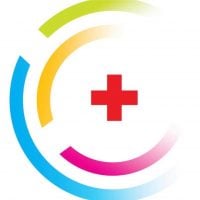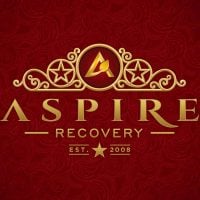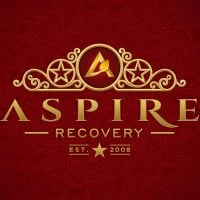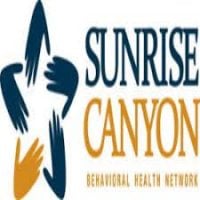
MCCAOD
Drug Rehab Center in Lubbock, Texas
- Substance Abuse
- Opioid Addiction
- Dual Diagnosis
- Drug Addiction
- Alcoholism
MCCAOD is an accredited addiction treatment facility in Lubbock, Texas that specializes in the treatment of alcoholism, opioid addiction, substance abuse, dual diagnosis, and drug addiction, and offers drug rehab, dual-diagnosis, inpatient, and residential levels of care that is accepted by private health insurance.
Multiple patients have reported MCCAOD as permanently closed.
Research other rehabs in Lubbock, Texas, or get help finding an open facility.
Our experts will find you an alternative facility.
(888) 674-0062 24/7 Free, Confidential, Expert HotlineAbout MCCAOD in Texas
Managed Care Center for Addictive/Other Disorders (MCCAOD) in Lubbock, Texas, provides intensive residential treatment for adults battling chemical dependency. With a focus on individualized treatment plans, MCCAOD offers a comprehensive approach to recovery.
- Screenings are conducted every weekday on a first-come, first-serve basis, ensuring accessibility for those seeking help.
- Each client receives a personalized assessment and treatment plan tailored to their specific needs, allowing for effective progress monitoring.
- MCCAOD emphasizes family reunification, coping skills development, problem-solving techniques, and overall recovery support.
As a state-licensed facility, MCCAOD meets the necessary standards and requirements to provide safe and effective treatment options for individuals struggling with various forms of addiction.
MCCAOD offers specialized services for those dealing with alcoholism, opioid addiction, substance abuse, dual diagnosis, and drug addiction. The facility provides inpatient and residential levels of care, along with comprehensive drug rehab programs that address the underlying causes of addiction and support lasting recovery.
Genders
Ages
Modality
Additional
Accreditations
State License
Conditions and Issues Treated
Many people need to recover from substance abuse to live a healthy life. In the end, if you can get through all the steps: detoxifying your body, rehabilitation after some time or when needed (depending on the type), and recovery while also receiving therapy support throughout the process, it can be worth it.
A detoxification center is a common place to start the recovery process from substance abuse. With your body and mind restored, you can continue to heal without the lingering effects of drugs.
Many people who struggle with opioid addiction need to attend specific programs like methadone , Suboxone or Vivitrol clinics.
These types of programs will provide the patient with legal, prescription medications that can help them overcome their cravings for illegal opioids like heroin or fentanyl . If the patient has a chronic condition like Hepatitis C, they must undergo treatment before they can begin taking these medications.
Dual Diagnosis is a specific relationship between two or more disorders that have the same symptoms and can sometimes be treated together. This is used in the treatment planning process when dealing with drug addicts. Dual diagnosis can be viewed as a chronic medical condition that has comorbid psychiatric disorders.
Although addiction and a mental illness may have separate symptoms that are not easy to detect, they often go hand in hand. Many times, drug abuse is a direct result of the mental illness. In other words, treating the addiction will not resolve all of your issues. Unless you also treat the underlying mental illness, you will not be successful in achieving sobriety.
Levels of Care Offered
This center offers a variety of custom treatment tailored to individual recovery. Currently available are Drug Rehab, Dual-Diagnosis, Inpatient, Residential, with additional therapies available as listed below.
Inpatient treatment is an intensive program that takes place when a patient checks into a rehabilitation facility. The treatment includes detoxification and counseling sessions, which are round the clock. Outpatient treatments are also available, but inpatient care is advised as the first step of rehabilitation.
Intensive rehab ensures the patient stays in a substance-free atmosphere, improving treatment success rates. The patient participates in group therapy for motivation from other patients who have overcome addiction. Family members are also involved in providing emotional support throughout the program.
Residential treatment programs are those that offer housing and meals in addition to substance abuse treatment. Rehab facilities that offer residential treatment allow patients to focus solely on recovery, in an environment totally separate from their lives. Some rehab centers specialize in short-term residential treatment (a few days to a week or two), while others solely provide treatment on a long-term basis (several weeks to months). Some offer both, and tailor treatment to the patient’s individual requirements.
Therapies & Programs
Individual Therapy is a critical component of addiction recovery. Therapists work with patients to identify the root of their addiction and figure out how to better handle the issues that led to them using drugs. Individual Therapy is the one-on-one session where people meet with their therapist. Individual therapy provides a safe space for people to open up and discuss personal and sensitive topics which they may not feel comfortable discussing in a group setting.
Family therapy will also help families realize that the addiction is not their fault. For many years, people blamed themselves for an addict’s behavior and felt that they had done something wrong. This is not the case. Addiction is a disease, and it can strike anyone, even if their life seems fine from the outside. It can bring a lot of shame to a family when they have an addict in their midst, but if everyone is open and honest with each other, then they can help everyone stay in recovery.
Group Therapy is utilized by drug treatment centers like MCCAOD to provide the recovering drug addict with a platform to talk about their feelings and experiences. It also provides for an opportunity to learn from other addicts who have successfully overcome their addiction.
Group Therapy is employed in lectures, seminars, or discussion groups (the latter two are typically conducted as “therapy groups”). It is recommended that all group members be recovering addicts for this type of therapy to work (though it does not exclude others with lived experience).
Nutrition therapy has been used to help drug addicts for decades. Many early reports on addiction treatment indicate that some patients recovered from the “satisfying power of food”. For years, this phenomenon has been utilized as a treatment modality in eating disorders for adults, adolescents, and children. Specific nutrients have been identified that influence neurotransmitters associated with reward pathways of the brain.
Studies have shown that carbohydrate loading with complex carbohydrates to elevate serotonin levels was effective in treating bulimia nervosa. This approach prompted researchers to explore the use of this type of nutritional intervention in other disorders.
Nicotine replacement therapy treats nicotine addiction using external sources of nicotine, such as patches or gum to substitute for nicotine. This allows people trying to quit smoking to get their desired dose of nicotine without actually having to smoke cigarettes. The idea behind NRT is that by providing smokers with nicotine in forms that are not cigarettes, they may be more likely to quit smoking.
NRT has been available for many years now, and there is a wealth of evidence that shows that it helps people trying to quit smoking. There are several different types of NRT devices on the market now. Patients interested in quitting smoking should talk to their doctors about the best kind of NRT for them.
Payment Options Accepted
For specific insurance or payment methods please contact us.
Is your insurance accepted?
Ask an expert, call (888) 674-0062
Additional Details
Specifics, location, and helpful extra information.
Lubbock, Texas 79416 Phone Number(806) 797-8003 Meta DetailsUpdated April 15, 2024
Staff Verified
What else do people call MCCAOD?
People have occasionally also searched for “Managed Care Center for Addictive Other Disorders - MCCAOD in Texas”
MCCAOD Patient Reviews
There are no reviews yet. Be the first one to write one.
Lubbock, Texas Addiction Information
Texas is one of the primary hubs for drug smuggling into the country. The border between Texas and Mexico is more than 1,000 miles long. More than 10 million residents use alcohol every year and more than 25% of those are minors. Alcohol and drug use has become so common in Texas that almost 15% of all deaths can be attributed to these substances.
Lubbock, Texas is one of the top 20 cities in the United States for drug addiction. Lubbock has an alcohol abuse rate of 5.5%. The most common drugs abused in Lubbock are marijuana and prescription painkillers. A devastating number of 283 overdose deaths took place in Lubbock County between 2003 and 2013. Addictions to alcohol and drugs can also lead to financial and physical health problems.
Treatment in Nearby Cities
- Kerrville, TX (299.0 mi.)
- Seguin, TX (367.7 mi.)
- Kaufman, TX (337.9 mi.)
- Joshua, TX (279.7 mi.)
- Athens, TX (370.4 mi.)
Centers near MCCAOD



The facility name, logo and brand are the property and registered trademarks of MCCAOD, and are being used for identification and informational purposes only. Use of these names, logos and brands shall not imply endorsement. RehabNow.org is not affiliated with or sponsored by MCCAOD.






